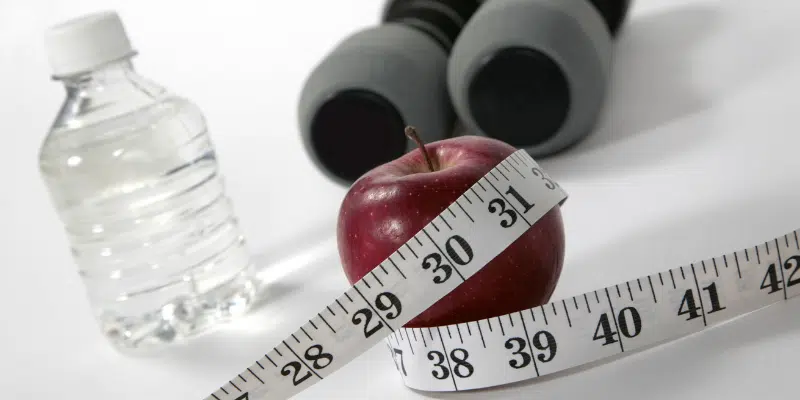Exercise & Weight Loss: Surprising Myths & Facts!
We live in a fitness-conscious world where everyone aims to get a healthy body. Most people have an active workout routine to maintain a healthy BMI and achieve a well-toned body. This brings us to the most asked questions — Is exercise the best way to lose weight? Can the duration of your workout affect your weight loss? Why shouldn’t you exercise to lose weight? Questions like these pop up in everyone’s mind while trying to lose weight through working out.
People often combine exercise with dietary restrictions to accelerate their fitness journey. But does exercise help you lose weight more quickly than diets, or is it the other way around? Let us shed some light on common myths surrounding exercise and weight loss to help you make the right and informed choice.
What Do Studies Say About Exercise and Weight Loss?
Several scientifically-backed studies help us understand the connection between exercise and weight loss. Here’s what they infer:
Adults who exercised greater than 200 minutes per week (−13.1 kg) lost more weight compared to those who exercised between 150 and 199 min per week (−8.5 kg) and those who exercised less than 150 minutes a week (−3.5 kg) at the end of 18 months.
Another study on the correlation of exercise and weight loss suggests that doing 150 minutes per week of moderate aerobic activity, 75 minutes of vigorous-intensity aerobic activity or an equivalent mix of the two each week effectively maintains weight.
A recent exercise weight loss study by the American College of Sports Medicine recommends about 250 to 300 minutes of moderate-intensity exercises to help you lose weight.
Must Read: Non-Surgical Weight Management Solution
Does Exercise Help In Weight Loss?
Most people tend to focus on one type of exercise or physical activity and believe that it is enough to lose weight and stay fit. Research shows that it’s essential to practice all four training types: endurance, strength, balance, and flexibility.
Physical activities such as walking, running, cycling, strength training, and aerobics offer health benefits, but you can’t solely depend on them for weight loss. Those of you who often wonder how to get a slim body should understand that exercise improves your fitness levels but doesn’t always guarantee weight loss. Exercise can increase metabolism and help maintain your weight and increase lean muscle mass if done consistently.
Must Read: How Many Calories Do You Burn From Daily Activities?
Diet Or Exercise – What’s Better?
In a nutshell, the idea behind using exercise or diet as a weight-loss tool is to either increase the energy expenditure or decrease the energy intake. While diet restrictions offer a significant advantage, we can’t deny exercise’s critical role in the weight-loss journey. Dietary restrictions, coupled with exercise, provide the best weight loss results.
Common Myths And Facts About Exercise And Weight Loss
Let us bust some of the most common myths and facts about the weight loss benefits of exercise:
-
The more you exercise, the better the results:
The quality of a workout is more important than its duration. An ideal exercise regimen should last an hour or two, depending on the intensity and with adequate rests or breaks between the sessions.
-
Aerobic workout is better than intense exercises to boost the metabolism:
In aerobic training, you can’t pick areas from where you want to lose weight. Besides, the aerobic workout’s calorie burn is far lesser than you think.
-
Increased sweating means good fat loss results:
Sweating helps regulate your body temperature during vigorous physical activity. While it has no relation to fat loss, it may lead to a reduction in water weight.
-
Crunches are the best exercise to get rid of belly fat:
Crunches are famous for being the best abdomen exercise, but they are not the only workout to lose belly fat. They do not engage your entire core but help strengthen the abdomen muscles.
-
Only strength training will help you lose weight:
Strength or resistance training helps increase lean muscle mass. Muscle mass needs more energy than fat mass even when the body is at rest. But then building muscle mass requires a great effort and strict dietary restrictions. In the long run, endurance training is more effective than strength training for weight loss.
Must Read: 15 Biggest Fat Loss Myths Busted!
Top 5 Exercises For Weight Loss
Here are the top five workout options — aerobic exercise, weight training, yoga, interval training, and running to achieve maximum weight loss.
It is best to consult a weight loss expert before starting a new workout program, especially if you are overweight or wish to lose weight from specific areas of the body. A customised solution can help you choose a fitness routine that best works for you and helps you reach the desired weight goal. Remember — a holistic approach to following an exercise routine and dietary regimen leads to a sustainable weight loss than just working out.
Our certified subject matter experts do extensive research and collate facts from reputed scientific journals and international studies to create informative and engaging articles related to all your dermatology concerns. They strive to help you decipher medical jargon, distinguish fact from fiction and overcome paranoia. Our qualified medical board or expert panel goes a step further to verify these facts based on their rich academic knowledge, vast clinical experience and critical industry insights to ensure you consume only medically accurate content that empowers you to make informed decisions about your hair and skin-care treatments and weight management. Check out our Editorial policy for further details
https://www.ncbi.nlm.nih.gov/pmc/articles/PMC3925973/https://pubmed.ncbi.nlm.nih.gov/19127177/
https://www.nia.nih.gov/health/four-types-exercise-can-improve-your-health-and-physical-ability












